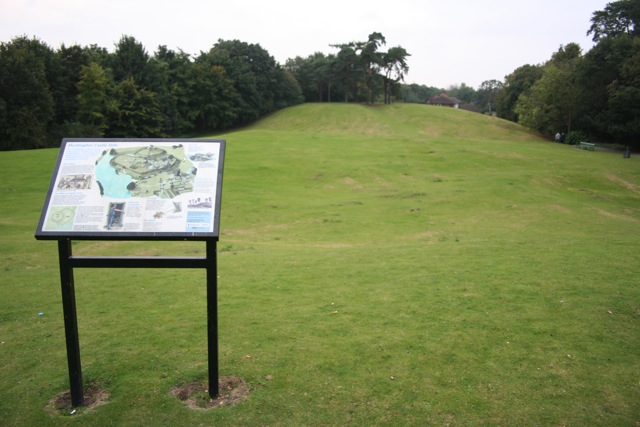Huntingdon Castle on:
[Wikipedia]
[Google]
[Amazon]
Huntingdon Castle was situated in the town of 
Huntingdon Castle 1Huntingdon Castle 2History of Huntingdon Castle Prison from theprison.org.uk
*Fry, Plantagenet Somerset, ''The David & Charles Book of Castles'', David & Charles, 1980. 1068 establishments in England 11th-century fortifications Castles in Cambridgeshire Scheduled monuments in Cambridgeshire Huntingdon Buildings and structures in Huntingdonshire William the Conqueror Henry II of England {{England-castle-stub
Huntingdon
Huntingdon is a market town in the Huntingdonshire district of Cambridgeshire, England. The town was given its town charter by John, King of England, King John in 1205. It was the county town of the historic county of Huntingdonshire. Oliver C ...
in Cambridgeshire
Cambridgeshire (abbreviated Cambs.) is a Ceremonial counties of England, ceremonial county in the East of England and East Anglia. It is bordered by Lincolnshire to the north, Norfolk to the north-east, Suffolk to the east, Essex and Hertfor ...
().

History
In 1068 a Norman motte and bailey castle was built forWilliam the Conqueror
William the Conqueror (Bates ''William the Conqueror'' p. 33– 9 September 1087), sometimes called William the Bastard, was the first Norman king of England (as William I), reigning from 1066 until his death. A descendant of Rollo, he was D ...
. During the Anarchy the castle was held by David, King of Scotland through his marriage to Maud, 2nd Countess of Huntingdon. He supported Empress Matilda
Empress Matilda (10 September 1167), also known as Empress Maud, was one of the claimants to the English throne during the civil war known as the Anarchy. The daughter and heir of Henry I, king of England and ruler of Normandy, she went to ...
in a war of succession
A war of succession is a war prompted by a succession crisis in which two or more individuals claim to be the Order of succession, rightful successor to a demise of the Crown, deceased or deposition (politics), deposed monarch. The rivals are ...
and the castle was much damaged at this time. However, when the succession was settled, David's son Henry paid homage to King Stephen who in turn gave him the borough of Huntingdon in addition to the castle.
By 1173 the castle was still held by the kings of Scotland, at that time by William the Lion
William the Lion (), sometimes styled William I (; ) and also known by the nickname ; e.g. Annals of Ulster, s.a. 1214.6; Annals of Loch Cé, s.a. 1213.10. ( 1142 – 4 December 1214), reigned as King of Alba from 1165 to 1214. His almost 49 ...
. He had sided with Henry, the rebel son of Henry II, during the Revolt of 1173–1174, and the castle was besieged by Richard de Luci. The siege was taken over by Simon de St. Lis but it did not end until Henry II (who had just performed penance
Penance is any act or a set of actions done out of contrition for sins committed, as well as an alternative name for the Catholic, Eastern Orthodox, and Oriental Orthodox sacrament of Reconciliation or Confession.
The word ''penance'' derive ...
at the tomb of Thomas Becket
Thomas Becket (), also known as Saint Thomas of Canterbury, Thomas of London and later Thomas à Becket (21 December 1119 or 1120 – 29 December 1170), served as Lord Chancellor from 1155 to 1162, and then as Archbishop of Canterbury fr ...
) arrived at Huntingdon. The siege ended the following day and Henry then ordered that the castle be dismantled ( slighted). The Pipe Rolls recorded that 7''s'' 8''d'' was spent on dismantling the palisade. According to historian Sidney Painter, it was one of at least 21 castles demolished on Henry II's instructions.
Parts of the castle did remain, including the chapel, and its ownership passed through a number of hands. The castle was refortified during the Civil War
A civil war is a war between organized groups within the same Sovereign state, state (or country). The aim of one side may be to take control of the country or a region, to achieve independence for a region, or to change government policies.J ...
. For a time it served as the county gaol, and later a windmill stood on the castle mound. Nothing now remains of the castle itself apart from its earthworks, although the site is a scheduled ancient monument.
See also
* Castles in Great Britain and Ireland * List of castles in EnglandReferences
External links
Huntingdon Castle 1
*Fry, Plantagenet Somerset, ''The David & Charles Book of Castles'', David & Charles, 1980. 1068 establishments in England 11th-century fortifications Castles in Cambridgeshire Scheduled monuments in Cambridgeshire Huntingdon Buildings and structures in Huntingdonshire William the Conqueror Henry II of England {{England-castle-stub